The Vitamins and Supplements Your Body Needs to Support Your Mental Health
Focus & Fitness

Have you ever questioned if you are getting the most out of your vitamins? Are you absorbing and utilizing the nutrients the best you can? Maybe thought about when is the best time to take supplements? Wondered if you should take them with food, without food, morning or evening? You are not alone. These have been questions many people have posed over the years. And, you guessed it – there are many different theories and philosophies regarding this topic.
Now, we know that supplements are designed to fill in the nutritional gaps we might have from our less than perfect daily diet and supplements are not to be taken instead of eating a healthy. And remember to always contact your health care provider before you make any changes to your current diet, exercise or supplement routine.
So let’s talk about when to take which supplements to get the most out of them. The Cleveland Clinic has published some great information regarding this very topic. Let’s review some of their suggestions.
https://health.clevelandclinic.org/the-best-time-to-take-vitamins/
Dr. Rodolfo Perez-Gallardo, MD (a family medicine doctor) offers up some interesting observations with regards to supplements, noting there are water-soluble as well as fat-soluble nutrients found in supplements. As a general rule of thumb, water-soluble supplements are absorbed best when taken with water on an empty stomach. Fat-soluble nutrients are absorbed and utilized best when taken with food that contains some kind of fat, even as little fat as found in low fat milk or yogurt. And fat-soluble supplements are thought to be harder to absorb and utilize when you take them with water on an empty stomach. Water with water – fat with fat. Sounds pretty easy, right? Not so fast……
One of the most common supplements taken is a multivitamin and mineral. Many of us take a daily multivitamin to get those “fill in the gap” vitamins and minerals we’re not getting in our daily diet. Even though it’s one of the most common supplements taken, it is one of the more challenging of supplements to determine when and how to take it. You see, most multivitamins contain BOTH fat and water soluble nutrients. Think of this in the bigger picture. Multivitamins will usually contain some water-soluble C and B Vitamins, fat-soluble Vitamins A, D, E, some minerals like calcium and magnesium and perhaps small amounts of other nutrients. Generally speaking, it’s best to take your multivitamin with breakfast or lunch. Not only because of the fat soluble nutrients, but also because of the B-vitamins that support energy production. You need energy throughout the day – not at night when you are supposed to be sleeping. Also, some people experience upset stomach issues when taking a multivitamin on an empty stomach. So, multivitamins take with breakfast or lunch.
A great option for your multivitamin is the Country Life Core-Daily 1®. Not only does it have your basic vitamins and minerals, but it is also a food base multivitamin (meaning actual food is part of the supplement). The uniqueness of the Core-Daily 1® is the food is fermented whole food, and it also contains some enzymes, probiotics and a little bit of inner fillet aloe vera.
Now, what about other possible supplements? Calcium? Magnesium? B-12? Vitamin C?
A common supplement particularly taken by many women is calcium. There are many different forms of calcium which are often combined with magnesium and possibly Vitamin D. Calcium supplements are usually best taken with food, and especially if they contain the fat-soluble Vitamin D. Country Life® provides many options when it comes to calcium supplements so you can easily meet your additional daily calcium needs.
Some of us will take a magnesium supplement to help with muscle support and/or relaxation. Frequently people take magnesium just before bed on an empty stomach, which works very well. Magnesium is a gentle mineral with very few digestive challenges. Taking a magnesium in a glycinate, especially the Country Life® Chelated Magnesium Glycinate, is less likely to cause a laxative effect for those sensitive to magnesium.
What about B-12 or Vitamin C? Both are water soluble nutrients and as we have stated, these are best taken with water away from food. Frequently people following a vegan or vegetarian diet can become low in vitamin B-12 (since B-12 is found more predominantly in meats). It’s important to get your blood levels checked to make sure your levels are in optimal range. If not, a B-12 supplement would be in order. Methylcobalamin would be the best form of B-12 to take, since it is the coenzyme form – meaning it’s body ready and easy to utilize. There are chewable forms, liquid forms, capsule forms, etc. Best taken in the morning away from food, B-12 is actually absorbed into the body through the small intestines.
Country Life® has multiple options including lozenges and tablets.
Yes, it can get confusing when taking supplements, especially when you are trying to get the most out of everything you consume. Keep your regimen something you can stick to based on your desired outcomes. Just remember, Country Life® provides you with multiple options with multiple supplement combinations to choose from, so you can individualize your supplement regimen and #PowerYourGreatness.











DISCLAIMER: ** These statements have not been evaluated by the Food and Drug Administration.
This product is not intended to diagnose, treat, cure or prevent any disease.